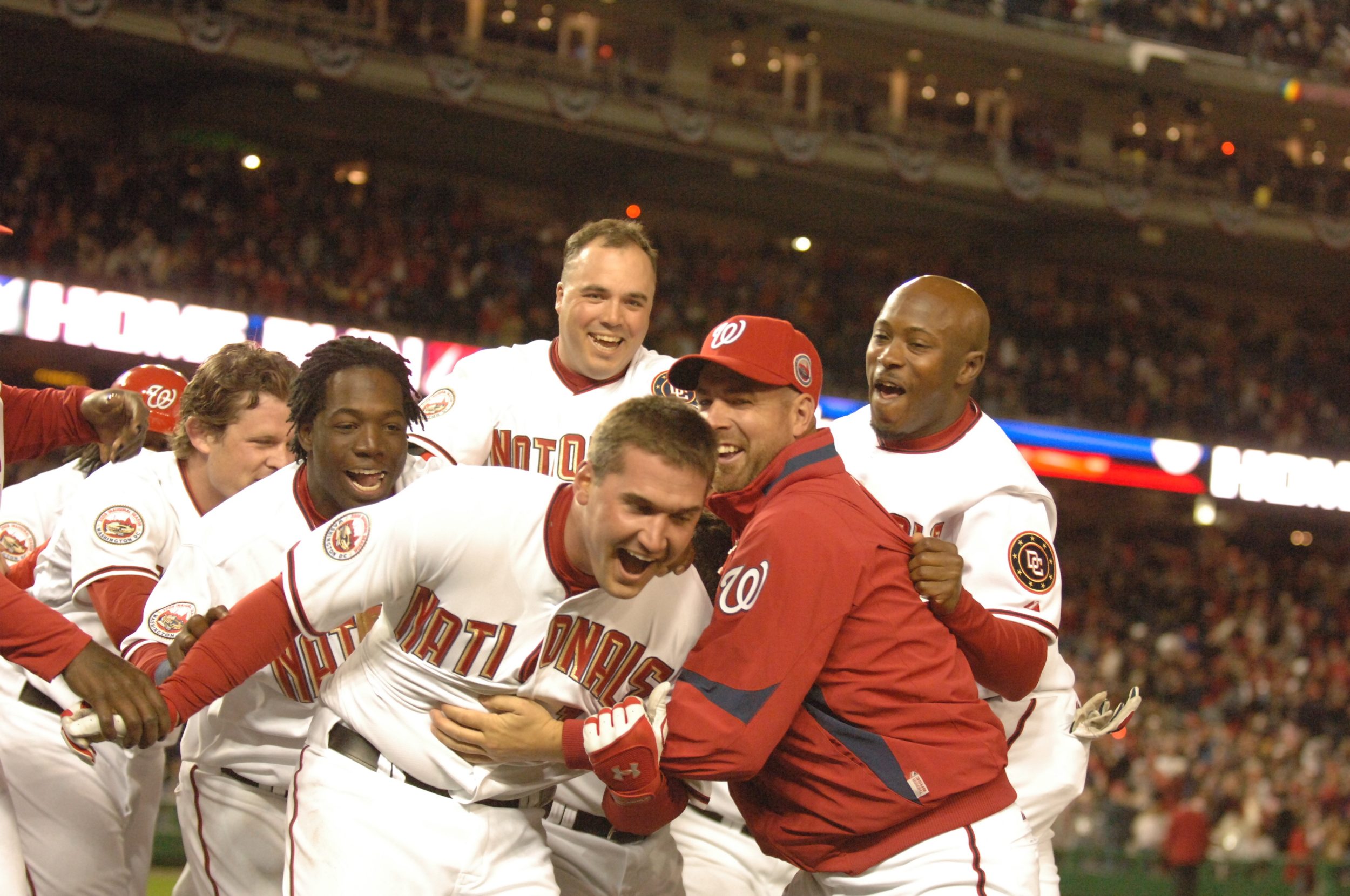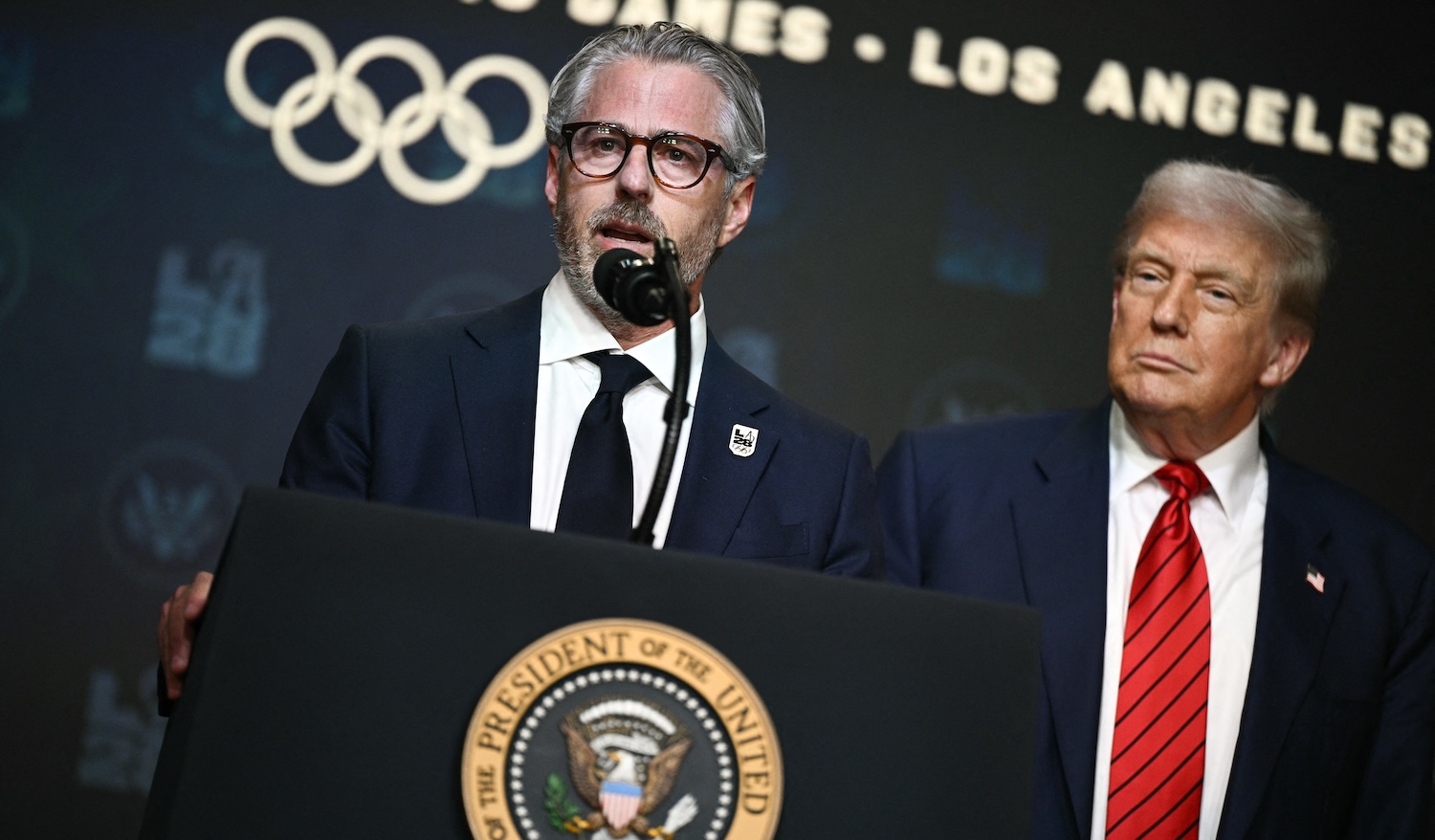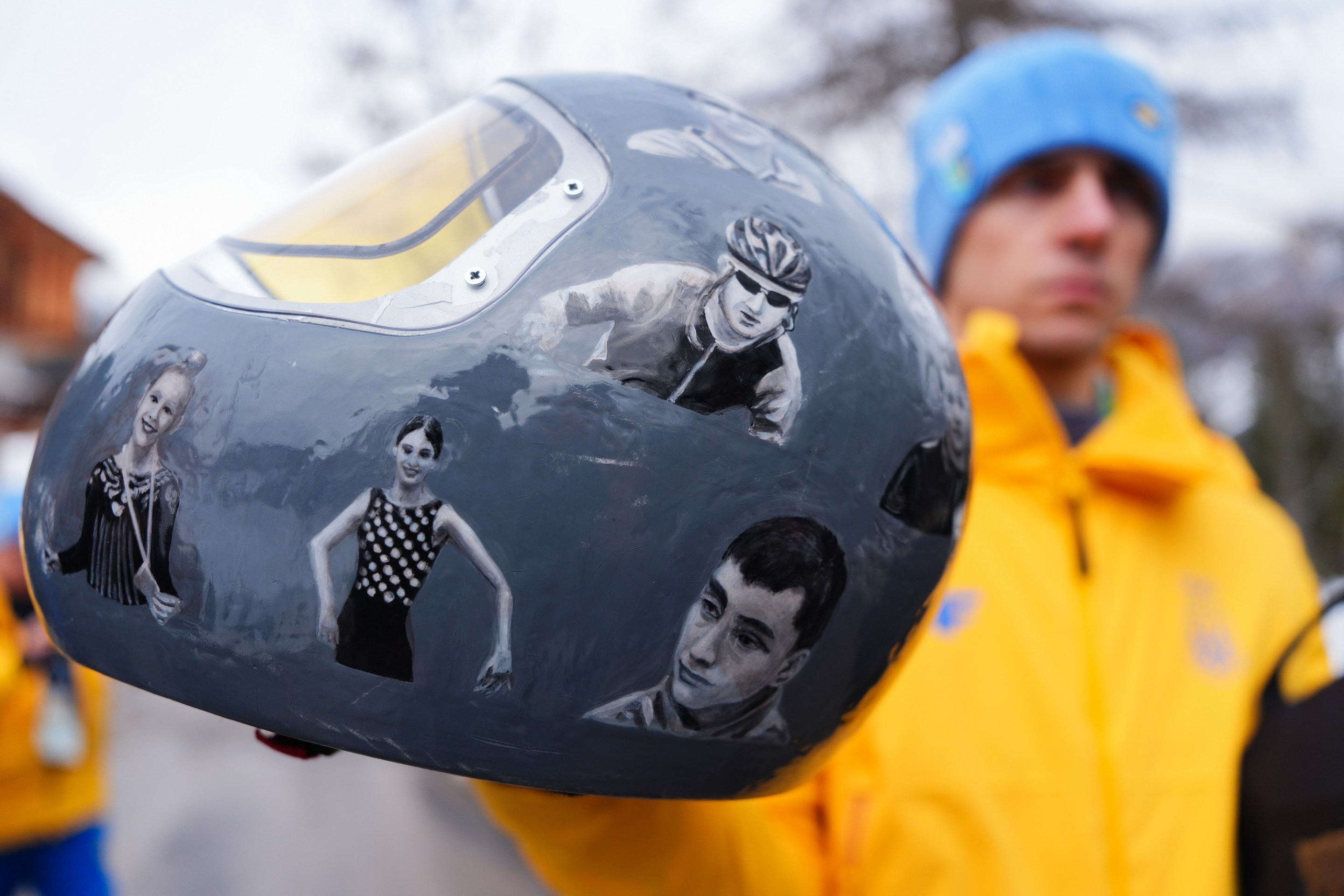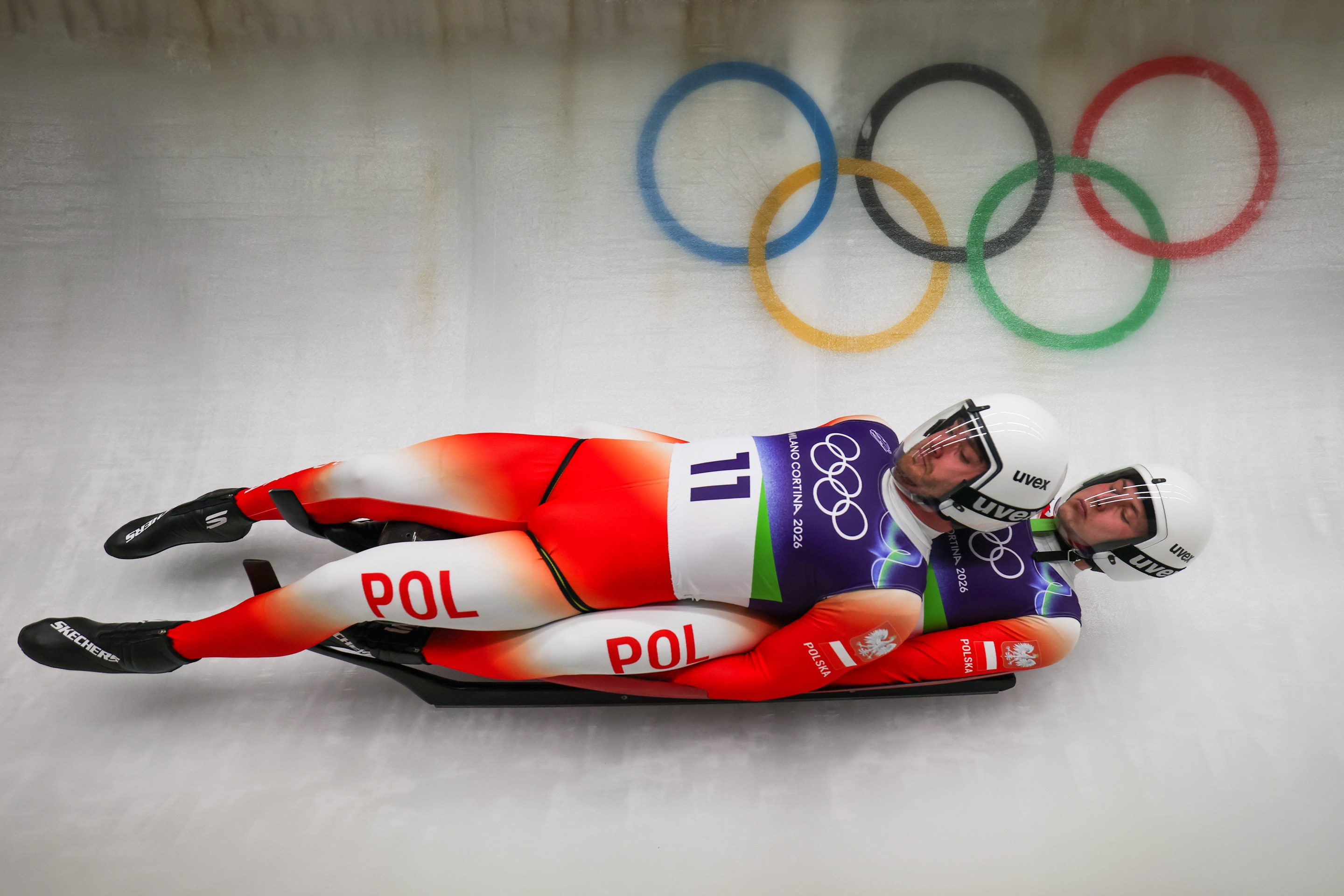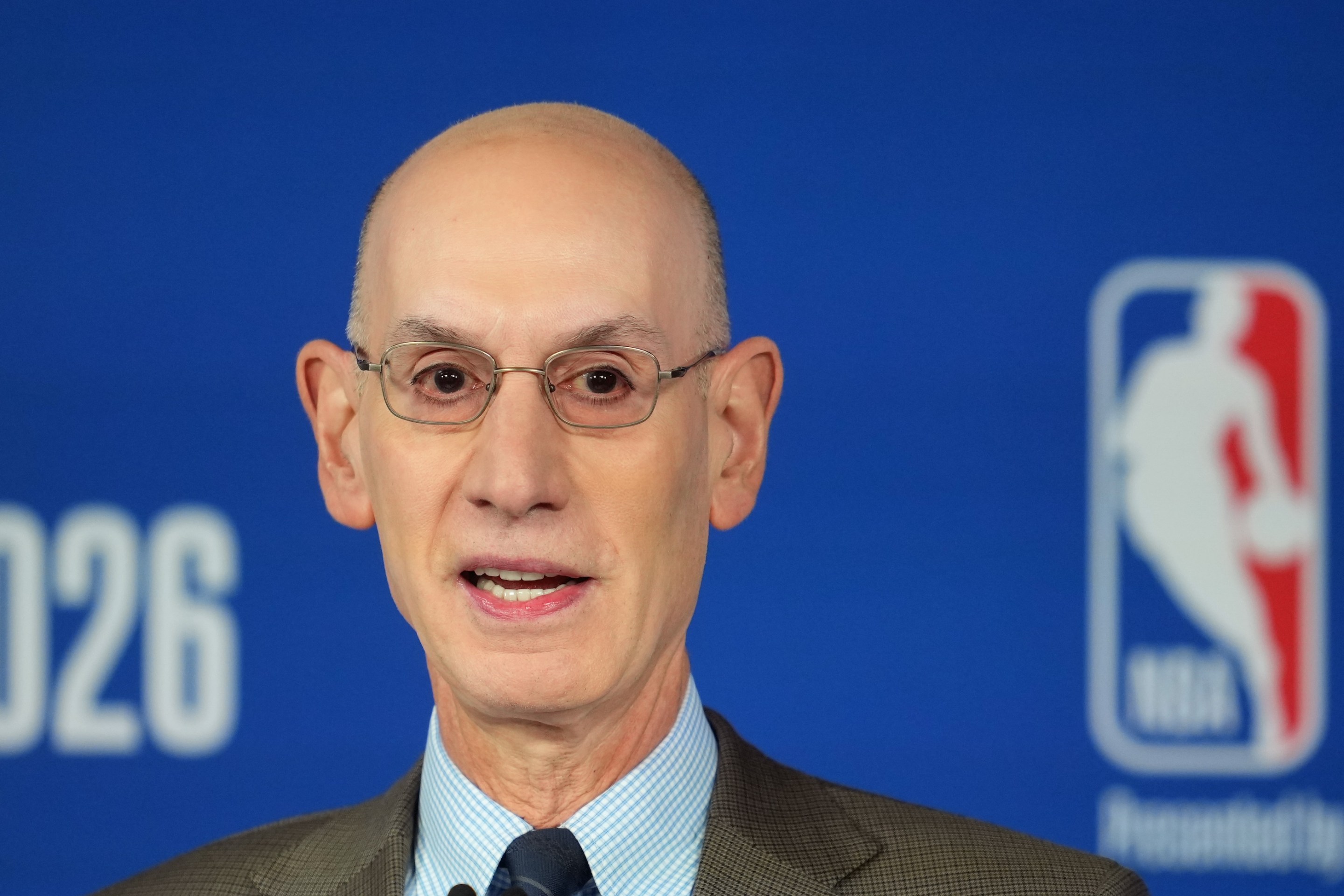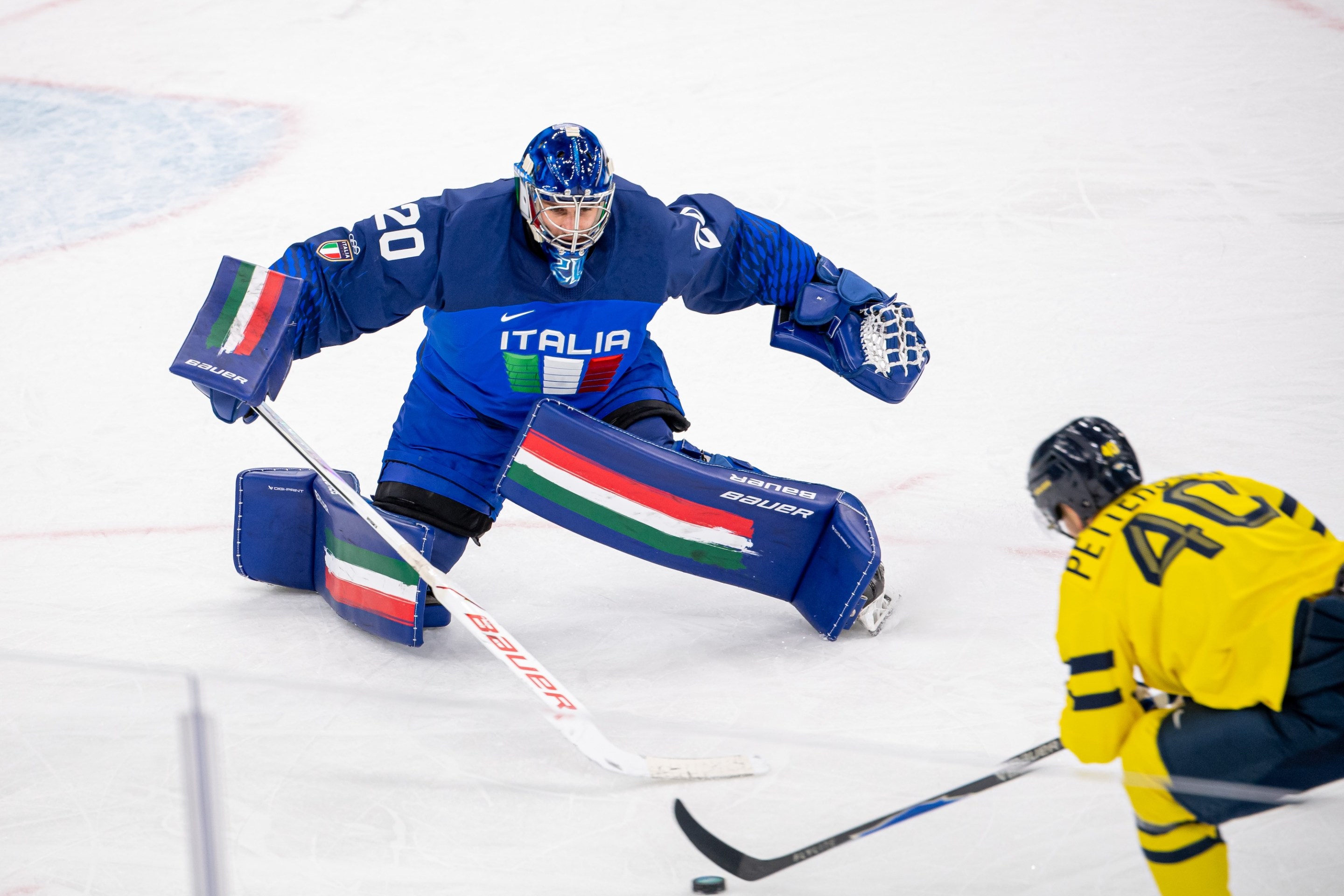Ryan Zimmerman, stalwart infielder for the Washington Nationals, announced his retirement Tuesday evening. After 16 years as a full-time big-leaguer, all with the Nationals, Zimmerman finishes his career as the franchise leader in games, hits, runs, home runs, total bases, and runs batted in, and probably some other stats, too. Zimmerman's 11 career walk-off home runs place him in the top-10 all-time in that feat, according to ESPN. When I shared a video of one of those walk-offs with an editor of this blogsite Wednesday morning, his response was a dismissive "zzzzz" and then a description of Zimmerman as "the most boring 'good' player who ever was." To me this is rude to the point of criminality: Zimmerman, on top of being a prolific slugger of mighty game-ending dingers, is also the most beloved player in the history of one of MLB's 30 teams. Show some damn respect!
Fans of expansion teams or relocated ones will probably know what I mean when I say that for their first few years of existence, the Washington Nationals did not feel quite real, and in fact at times felt a very long way from real. There was baseball the way that you've always known it—familiar uniforms and stadiums and rivalries and George Steinbrenner—and then over here in a dilapidated, repurposed football stadium was this dipshit interloping local outfit, with generic-looking uniforms and an ugly logo and an extremely expansion-team-y roster (even if it was actually just the unsellable dregs of the Expos), doing an awkward impersonation of a big-league team, in front of dopey, touristy fans who were still too happy to be there to provide that familiar acoustic backdrop of a properly savvy baseball crowd. "The Wave" was an ongoing thing, is what I'm saying.
Ryan Zimmerman was drafted by the Nationals at the absolute nadir of this period of unreality, in June 2005, eight months after MLB decided to move the Expos to Washington and less than two months after their first home game in D.C. Baseball has changed a lot in the years since, and not always for the better. It's striking to look back now and recall that Zimmerman was called up to the majors in September of that same year, and never looked back: Service-time manipulation is a sticking point in current CBA negotiations precisely because nowadays the fourth overall pick in a given draft has a better chance of experiencing low-earth orbit than he does of accruing 172 days of service time in his first full year out of college. The Nationals of those early years were (and still are) unabashedly thirsty for local relevance; probably they would've pulled the same move even if that pick had been spent on Jeff Clement, who went one spot ahead of Zimmerman in the 2005 draft and never came close to catching on as a professional.
Anyway it was apparent already that the kid could play. Given 682 plate appearances in 2006, Zimmerman batted .287 with 20 dingers and 110 RBI, was third on the team in bWAR, finished second in Rookie of the Year voting, and became real as a baseball player in a way that continued to elude for the entire rest of that decade the organization signing his paychecks. Washington's rosters struggled to shake the quadruple-A, mercenary vibe—Aaron Boone started 49 games for the Nationals in 2008—that made them difficult to support for any reason other than that they wore "D.C." on their uniforms. No other homegrown position player so much as sniffed a significant role in the lineup. The Nationals finished anywhere but last in the NL East just once in their first six seasons. The portion of this that took place at dreary old RFK stadium has left not even one positive impression in my brain.
The team moved into their new baseball-only stadium in 2008, in Zimmerman's third full year in the majors. By this time he was already a local folk hero, for being the sole source of real hope for a wayward baseball operation that both started and was trending in the wrong direction. The team's first ever regular-season tilt at Nationals Park came on opening night, in a nationally televised game against the Atlanta Braves, who were then mired in their own multi-year rut. It was, for the most part, not a memorable game. Tim Hudson pitched seven solid innings for the visitors. Mark Teixeira lined a double to right-center in the top of the ninth, and was replaced at second by pinch-runner Martin Prado, who later scored on a passed ball to tie the game. With two outs and the game knotted at two runs in the bottom of the inning, Zimmerman took a mighty hack and barreled up a tailing 1–0 inside fastball, the audacious crack of contact exploding even over the television broadcast. I am grinning just thinking about this moment:
No, this was not the moment that the Nationals became real. They lost 103 games that season; Lastings Milledge finished second on the team in plate appearances; Tim Redding started 33 games as the staff "ace." Zimmerman's walk-off dinger, in the ninth inning of a March baseball game, was quite literally the high point of the year. In retrospect, this strikes me as fine, and perhaps even good. As a lifelong fan of several half-assed perennial also-rans, another crappy year seems like a fine thing to trade for a big special legend-building moment in the career of the rare good player who is enthusiastically one of us locals. Yes, even if "good" is appended with scare quotes by shitheeled outsiders.
Zimmerman had a real knack for redeeming the garbage baseball around him. I have a painful memory of sitting along the third baseline at Nationals Park, directly behind an obnoxious fan of the visiting Phillies who took smug pleasure from noting how much the crowd relied on paid cheerleaders for cues in places where Philadelphians simply understood the stakes. I offered no defense, because she was right. Every time the bullhorn guy would jump on the dugout roof and implore the crowd to make some noise, she would turn around with a look of faux bewilderment and gloat about how a savvy Phillies crowd would simply never. Do you know what happened later in that same game?
Let me assure you, she had nothing at all to say about that.
The Nationals are in some ways harder to root for today than they were that night in 2010, and not just because they once again stink. This time, they stink in part because they have made a decision to stink. Bryce Harper and Anthony Rendon, two home-grown talents who developed into players of objectively higher quality than Zimmerman at his absolute peak, were cast off in free agency, with only token offers from the Nationals, designed more than anything to help ownership save face. They currently employ one of this generation's best players in 23-year-old Juan Soto, but Soto's impending payday is likely to coincide with the team's swing through deliberate crappiness, and fans are already preparing themselves for a time when Soto is wearing Yankee pinstripes or Dodger blue. The big-league roster is in shambles, but unlike last time, we now all know the limits of ownership's interest in fielding a winner. Zimmerman's retirement closes an era, not just of the time when the Nationals were shiny and new, but to a time when it was possible to believe this organization with these owners would invest in the thing you loved most about the team.
So that will be something for Nationals fans to wrestle with. But what they will miss will be the irrational belief that Zimmerman might have yet another big game-winning dinger in him, if he can just get to the damn plate in the right spot. Boring? No! Specifically for doing things on a baseball field that made you want to claim him, Zimmerman was from day one distinct from everything else about the Nationals organization. He's been on the downslope of his career for at least five and as many as eight years, and recently has been more a source of good humor and of long-view wisdoms than a real contributor. But Nationals fans will always appreciate him for punctuating those grim early years with slick glove work, timely hitting, memorable dingers, and foolish, ridiculous hope. Today the Nationals seem as close as ever to being real, if for no other reason than that their fans are genuinely saddened by the closing of the Ryan Zimmerman era, and pain is never very difficult to believe in.
